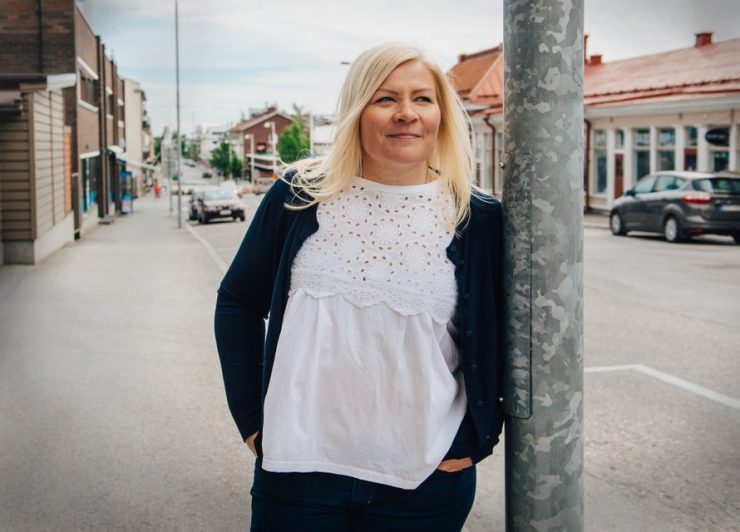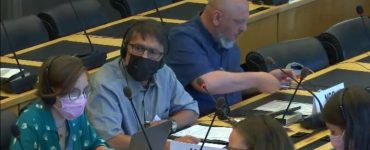I moved to Dubai in 2001 to work in the travel industry and later became real estate agent. In 2010, I was approached by Latifa Al Maktoum, a daughter of Dubai’s ruler Sheikh Mohammed bin Rashid Al Maktoum. She was seeking private lessons in capoeira (an Afro-Brazilian martial art). We soon became very good friends.
When Latifa came to me and asked me to help her escape the UAE, I agreed without any hesitation. After careful planning, we left Dubai in February 2018. After driving through the Emirati-Omani border, we boarded a private yacht in the international waters, off the coast of Muscat, Oman and started our journey.
Eight days later, on March 4, 2018, we were navigating in international waters off the Indian coast of Goa when a number of fast speed dinghies carrying masked special combat soldiers surrounded us, and dozens of soldiers crept up on the yacht. We stayed inside but were eventually forced out when smoke started coming in from all the vents until we could barely breathe. I walked up the stairs to the inner deck and found myself surrounded by many men, who appeared to be Indian special forces. They were wearing commando outfits and holding machine guns. The guns had red laser sights which were all over me. I was scared to death. They started screaming and shouting at me to get on the floor and threatened to kill me if I didn’t obey their orders.
They beat up the crew and the captain of the boat. The men tied my hands and threw me on the floor. I found myself lying on the floor in a pond of blood whilst they were threatening to shoot me. At this moment, I thought they had killed a crew member and that I was going to be next. I have never been more scared in my life. The men stepped on my body many times. They were very aggressive and kept threatening to shoot me in the head. I was petrified.
I was dragged to the front deck and that’s where I saw Latifa lying face down on the floor, her hands tied behind her back. When she one of the Indian men threatening to shoot me, Latifa started shouting at him to leave me alone and repeatedly told the men she was seeking political asylum in India, but her pleas were blatantly ignored.
A few minutes later, I started hearing Arabic. It seemed that an Emirati man had been brought on board to identify Latifa who was still lying on the floor. She was dragged away screaming and begging them not to take her back to the UAE. I asked them to let me contact my embassy and my family but they refused.
The yacht was then boarded by Emirati soldiers who took over the yacht and told me that I would be taken to the UAE. The UAE had sent a captain. The UAE armed forces assumed command of the Nostromo and set the course back towards the UAE on the morning of 5th March 2018.
We sailed back for four days on the Nostromo, escorted by Indian Coast Guard Ships, and, on the 4th morning, I saw a UAE navy ship heading towards us. The name “Baynunah” was written on the side of the boat. On the ship, we were locked in a small cabin and were not allowed to talk to the crew.
Back to Dubai
Upon arrival to the UAE, I was handcuffed and blindfolded and led out of the ship into a waiting car. I was able to hear photos being taken as I sat in the vehicle. I was taken into what appeared to be a jail, which, I later learnt, was their national security jail. I was scared and inquired for the reason for my arrest. I also requested to make a phone call, but they replied that nobody was allowed to make phone calls in this place.
This was the beginning of days of interrogation in secret detention. They asked me to sign a document in Arabic, which I refused to do. They took mug shots and then put the blindfold back on. Late at night, likely around 11 pm, I was taken to an interrogation room. Someone removed the blindfold and I saw two men and a woman entering the room. They just sat there quietly in the room and interrogated me all night.
For two weeks I was held in solitary confinement in a cold cell without anything to shower and with no contact with the outside world. The interrogators later told me that I was accused of “betraying the ruler of Dubai,” which they described as “a serious crime.” I was interrogated and threatened with the death penalty or life imprisonment if I didn’t agree to give false confessions. They became more and more aggressive during the interrogations.
Different interrogators asked me the same questions over and over again. They also asked me if I was involved with Qatar. They were refusing to believe that I was simply helping a friend to finally live free.
Forced confessions
I was then taken back to the cell. I felt completely broken. They left me in the cell for four days before bringing me back to the interrogation room again. When I was brought back, I was told that Sheikh Mohammed had decided to give me “a second chance in life.” The men said that I would be able to leave with the captain and the crew of the Nostromo within 96 hours if I agreed to record confessions.
Police officers took me to my cell, gave me my suitcase and asked me to take a shower and change my clothes. They brought me back to the interrogation room, where I saw three men and two cameras. The interrogators gave me specific instructions about what I had to say. Of course, it didn’t include any information about my abduction from international waters of the Indian Ocean, my interrogation and my secret detention.
I was forced to sign written confessions in Arabic; it was a condition for my release.
They then gave me a paper sheet with a list of pledges in English that I was asked to sign on. Among the pledges I was signing on, I was asked to never speak about the interrogation process and never tell negative things about the UAE or its leaders, never contact Latifa again or talk about what happened when we were captured.
“You are so lucky. You are getting a second chance. Use it well,” they said. They threatened me again and told me that Sheikh Mohammed could find me anywhere in the world and bring me back as he just did. We were brought back from the middle of the Indian Ocean. They said “He is very powerful. Don’t forget this.” They also threatened to put my name on Interpol and I later came to know that they had already done that.
Release
Another two nights had passed and I was finally taken to Dubai Airport the following morning. The personnel from the national security jail escorted me all the way to the departure gate.
I was given my passport back once on the plane. I saw that my passport had an entry stamp to the UAE dated 21st March 2018. I realised that they were trying to erase the abduction from international waters and my incommunicado detention in Dubai.
One of the men who accompanied me to the airport was an Emirati officer from the national security jail. I had seen him at the national security jail the day I was first brought there.
After I boarded the flight to London, I charged my phones and switched them on. I realised then that all the data had been wiped from my phones. At Heathrow, I met the Consul of the Finnish Embassy in London and told them what had happened. I was still in shock.
When I finally arrived home, I received calls from an Emirati State Security officer reminding me of the NDA I had signed. After I went public with my story, the calls stopped.
Since then, I have campaigned for Latifa’s release and run the FreeLatifa campaign with David Haigh.




Add comment